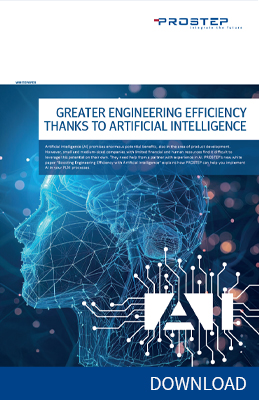Automated vehicles must react safely in all driving situations. Testing this on the road would take years. If vehicles are to be approved for use on the road, it is crucial that simulation can be carried out efficiently. "Getting automated vehicles onto the road requires powerful, simulation-based tools and methods that can be used both during development and in the context of approval," states Prof. Frank Köster, founding director of the DLR Institute for AI Safety and Security, who is coordinating the project together with Dr. Stefan Rude from BMW.
The SET Level project partners are developing a method that will allow critical traffic situations to be mapped digitally in their entirety, thus enabling them to be simulated. This will significantly reduce the future cost involved in approving automated vehicles. What makes the method special is the use of open standards and simulation tools. This means that once the project has come to an end, it can be used and even further developed by numerous companies and research institutes.
The project partners used three simulated traffic scenarios to present the initial solutions to those attending the virtual half-time event. This involved simulating digital representations of vehicles in traffic situations under a wide variety of different criteria in order to draw conclusions about the reliability of the sensors and algorithms. The researchers focused on the test method, the simulation tools and the interaction between the software components.
PROSTEP provides the partners with support when it comes to the testing and industrialization of the project results and, as part of the project, is developing a demonstrator for a traceability solution that will be used to document the simulations. "We can, for example, use it to determine when which simulation models led to which results and decisions, using which software and hardware configuration, and subject to which constraints and requirements", explains project manager Dr. Steven Vettermann. Once the project has been completed, PROSTEP will develop the demonstrator into a commercial product and market it under the name OpenCLM.
SET Level will run until August 2022. The project has a total budget of more than 30 million euros and is receiving funding from the German Federal Ministry for Economic Affairs and Energy (BMWi). It builds on the PEGASUS cooperative project, which was completed in May 2019 and in which quality standards and methods for validating highly automated vehicles were developed. However, unlike SET Level, which is primarily concerned with flexibly automated and networked driving functions in urban areas, the focus of research back then was the highway.
The partners involved in the SET Level project are ADC Automotive Distance Control Systems GmbH, Audi AG, BMW AG, dSPACE GmbH, DLR Institute of Transportation Systems, ETAS GmbH, Ford-Werke GmbH, Fraunhofer LBF, Forschungszentrum Informatik (FZI ) at the University Karlsruhe Institute of Technology (KIT), IPG Automotive GmbH, MAN Truck & Bus AG, Oldenburger Institute for Information Technology (OFFIS), Opel Automobile GmbH, PROSTEP AG, Robert Bosch GmbH, RWTH University in Aachen (Institute for Automotive Engineering), Braunschweig Technical University (Institute of Control Engineering), Darmstadt Technical University (Institute of Automotive Engineering), Volkswagen AG, ZF Friedrichshafen AG.
